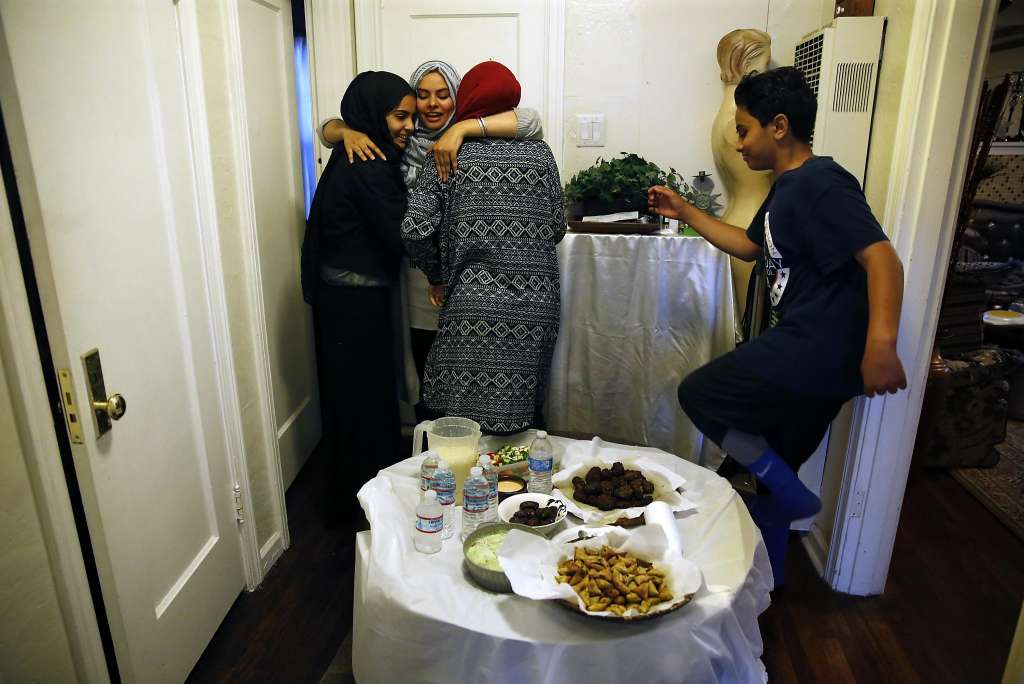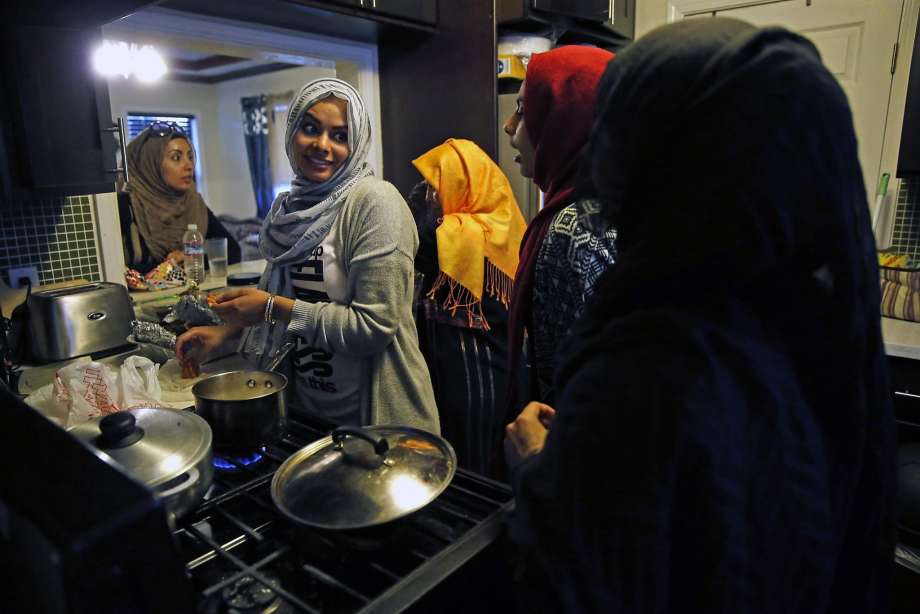JUL42016
Remember the story about the London, Ontario woman accused of a ‘hate crime’ for allegedly spitting on a Muslim woman, punching her, and pulling off her headbag?
That’s right, you haven’t heard anything about it since the initial media ‘Islamophobia’ frenzy because (wait for it) the attacker turned out to be a Muslim woman from Iran.
ORIGINAL STORY/VIDEO: LONDON, Ontario: Woman charged after shopper’s hijab pulled in Ontario supermarket
The Rebel (h/t Liz) When police in London identified and charged the suspect, they only charged her with common assault—not anything “hate” motivated.
More curiously, they refused to name her, which is a stark departure from their usual practices, through which the names of anyone charged are released to the media. Even when asked by media outlets, police were tight-lipped.
The accused is 38-year old Sheila Shaidaie of London. We don’t yet know her motivations for the alleged assault, but we do know one thing: When she appeared in court, she had a Farsi interpreter.
JUL32016
NOT AMERICAN? Donald Trump’s remarks on Muslims’ inability or lack of desire to assimilate astounds some Muslims
But why should it? Just look at the photos of these so-called “American Muslims” included in this story and you’ll see why Trump is exactly right.
SF Chronicle Under the hood of a gray Giants sweatshirt, 11-year-old Ilyaas Mubarez was absorbed in his iPhone as his family members talked about their identity as Muslim Americans.
But when his 14-year-old sister began to talk about how she felt when presidential candidate Donald Trump questioned whether Muslims could blend into American culture, Ilyaas looked up, baffled. “This is my place,” he said confidently. “I’ve been here my whole life.” (Living in America doesn’t make you American)
His sister, Hanan Mubarez, seated next to him in a tiny San Leandro mosque, quickly echoed his statement: “Yeah, I don’t feel the need to assimilate because it’s already a part of me. I was born and raised here.” (But you do your best to make it look like you just got off the boat)
In conversations laced with both astonishment and concern, Muslims in the Bay Area and beyond have been coming to grips with accusations — most notably by Trump — that they aren’t assimilating, or becoming fully part of U.S. society.
Two days after the mass shooting in Orlando that killed 49 people, Trump responded to a question about screening U.S. immigrants of Muslim faith by saying, “Assimilation has been very hard.
“It’s almost — I won’t say nonexistent, but it gets to be pretty close,” Trump said. “And I’m talking about second- and third-generation. They come — they don’t — for some reason, there’s no real assimilation.”
Trump did not say how he defines assimilation, or how he came to his view, but the concept is powerful, calling into question whether Muslims can ever be truly considered American. The implication is that Muslim immigrants cling unnaturally to the places they or their families left behind, and are therefore dangerous.
“We have to decide as a country: What does it mean to be an American? Is it a set of ideas and values or is it a cultural, ethnic background and specific religion?” said Dalia Mogahed, head of research at the Institute for Social Policy and Understanding, a think tank in Washington that seeks to empower American Muslims. “Muslims will never be insiders if the cost of membership is to be white, Anglo-Saxon Protestant.” (How about trying to be a little less Muslim?)
Trump has said the government should ban Muslim immigrants, and that law enforcement should consider profiling Muslims already in the country. By singling out Muslims, Trump is playing to supporters who are anti-immigrant, even though many Muslims are U.S.-born, said John Esposito, a Georgetown professor who founded the university’s Center for Muslim-Christian Understanding.
“If you believe Muslims aren’t integrated, then you’ve got the rationale” for these policies, Esposito said.(That’s right, you aren’t)
“It’s a false and problematic standard,” said Shadi Hamid, a senior fellow at the Brookings Institution and author of the recently published “Islamic Exceptionalism: How the Struggle Over Islam is Reshaping the World.”
To Hamid, assimilation signifies giving up traditions, heritage and language, but that’s never been the American model. Instead, he said, the country has allowed immigrants to integrate and be fully American without giving up their traditions or language. (But Muslims try to force their traditions, foods, and religious demands on everyone else, then sue if they don’t get their way. THAT’S the problem!)
These days, Hanan Mubarez also feels the sting of Trump’s comments. “I feel harassed,” she said. “He doesn’t have a right to say things like that. He’s talking about my culture.”
Jehan Hakim, who is a panelist at regular “Meet a Muslim” events in the Bay Area that seek to break down stereotypes about her community, said she has a simple solution to quieting the provocative talk about assimilation.
“I think if people met a Muslim, they’ll know that Muslims are American,” she said, “and that what Trump is saying is so un-American.” (We know Muslims which is why we know they are NOT American and never will be as long as they follow Islam)
B












No comments:
Post a Comment